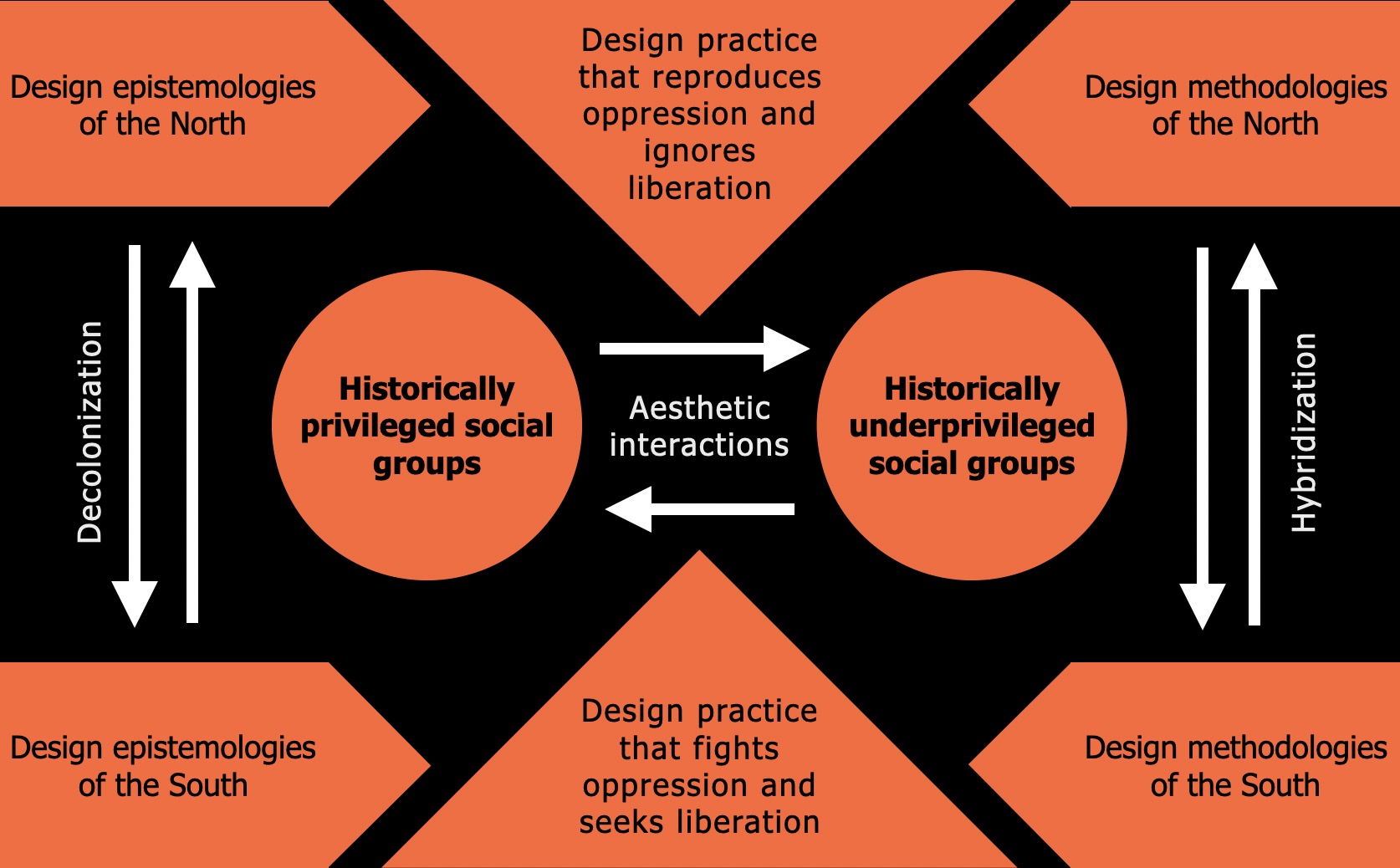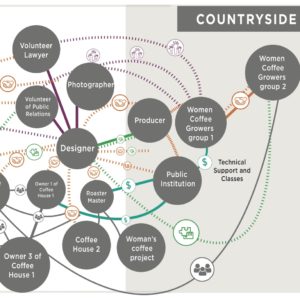Multiple versions of Participatory Design emerged in different contexts and disciplines. Despite taking advantage of knowledge generated by the Global South, such as Participatory Action Research, Participatory Design is mainly practiced based on Northern theories, such as critical theory, post-structuralism, and phenomenology. Despite their contributions to building a democratic approach to design, these theories did not yield overcoming the inherent contradictions of design participation, such as the dependence on facilitators, the persuasion of powerful social actors, and the need for consensus. Thanks to their origin in situations of conflict and accumulated knowledge about autonomy, the epistemologies of the South offer an opportunity to rethink Participatory Design based on the experiences of oppression and contradiction. The goal of this project is to explore multiple epistemologies of the South, in particular, those developed by Latin American authors, that can contribute to making the praxis of Participatory Design relevant in the context of contemporary democratic conflicts in Latin America. From this exploration, new insights about design epistemology may rise.

Fact sheet
- 2019-2022
- This research project laid the theoretical foundation for the Prospective Design Graduate Program

